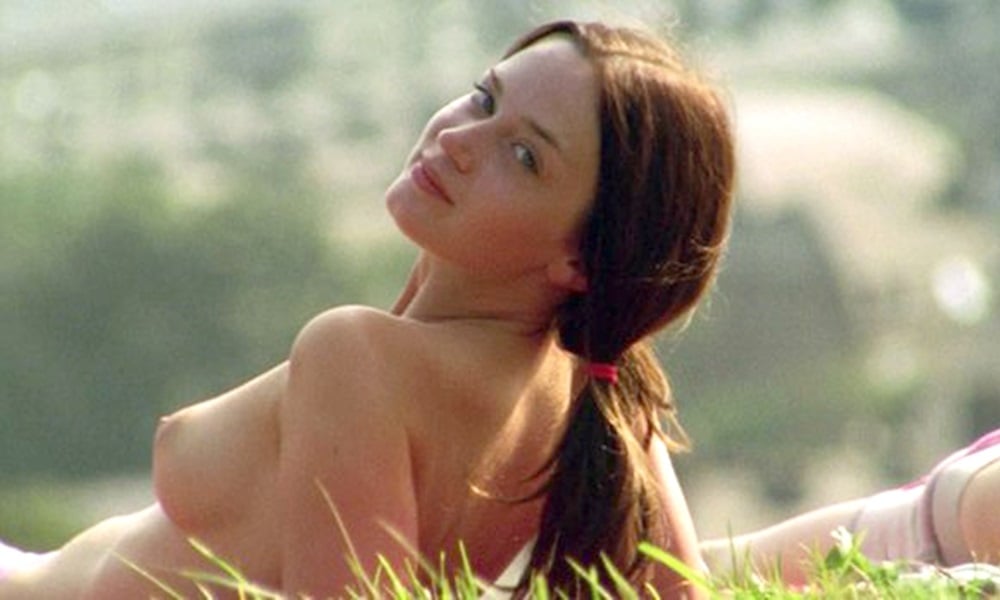When we think about public figures, especially those who work in the acting world, there’s often a lot of talk about their on-screen appearances and the choices they make. It's almost as if, you know, every decision about a role, or how a character is presented, becomes a point of discussion for many. This can be especially true when it comes to personal comfort and what an actor feels is appropriate for their work, as their perspective can, in a way, shift over time, reflecting personal growth or changes in their outlook.
There are, you know, many reasons why someone might choose certain roles or decide against others, and these reasons are often quite personal. For actors, their age, their life experiences, and even just where they are in their career can really play a part in what they feel good about doing. It's not always about the character itself, but sometimes about how they feel portraying certain aspects of a person on screen, and what that means for them as an individual.
This article, basically, looks at some of the things that have been said about Emily Blunt and how these conversations touch on her choices and the ways characters are shown in films. We'll explore some specific comments attributed to her, and also, you know, look at how certain scenes in movies she's been in might be understood. It’s about, in a way, getting a broader picture of these discussions, drawing only from what has been shared in some existing text.
Table of Contents
- A Look at Emily Blunt – Personal Details and Career Notes
- What Influences Choices About Emily Blunt Nude Scenes?
- Beyond the Screen – Other Interpretations of Emily Blunt Nude Themes
- How Do Perceptions of Emily Blunt Nude Scenes Evolve?
- What About "Emily" – A Different Kind of Story?
- Are There Other Considerations Related to Emily Blunt Nude Discussions?
A Look at Emily Blunt – Personal Details and Career Notes
Biography Snapshot
Emily Blunt, an actress who has appeared in many films, has, you know, been part of various conversations about her work and public image. When a specific comment was made, she was, in fact, 33 years old. This age point is actually quite relevant to some of her thoughts on roles and how she approaches her craft. Details about her background are, you know, not widely available in the provided text, but her age at a particular moment does give us a small window into her perspective at that time.
When thinking about public figures, it's often the case that certain pieces of information become widely known, while others remain, you know, less talked about. For Emily Blunt, her age at the time of a particular statement is something that was noted. This, in a way, helps to set the scene for understanding her comments about her acting choices. We can, you know, see that her career has spanned a period where her personal feelings about roles have, perhaps, had a chance to develop and change. Basically, the information we have is pretty limited to her age at one point.
| Detail | Information |
|---|---|
| Age at time of quote | 33 years old |
| Other personal details | Not available in provided text |
Emily Blunt's Thoughts on On-Screen Portrayals
Emily Blunt, when speaking with The Telegraph, shared some thoughts about the kinds of roles she prefers to take on, and also, you know, what she might shy away from these days. She mentioned that something "too racy" would be, you know, one thing she wouldn’t choose for herself at that point in her life. It’s almost as if her comfort level with certain types of scenes has, perhaps, evolved over time, which is, you know, a pretty common thing for people as they get older.
- Gretchen Oc Housewives
- Katy Perry And David Hudson
- Girl In The Closet
- Jason From Howard Stern
- Lunar Phases
She made it pretty clear that she wasn’t, you know, "so keen on doing nudity" anymore. This particular sentiment was linked directly to her age at the time, as she explained, "because I’m not 22 any more." This suggests, basically, that her perspective on portraying certain things on screen has changed as she has gotten older. It's a very personal boundary she seems to have set for herself, reflecting a shift in what she feels is appropriate for her work at this stage in her life. This kind of personal decision is, you know, something many actors might face as their careers progress.
The idea that her age, 33 at the time, played a part in her decision not to pursue roles involving nudity is, you know, quite telling. It implies that at 22, her feelings on the matter might have been different. This shift in comfort is, in a way, a very human aspect of an actor's journey. It’s about, you know, what feels right for them as a person, not just as a performer. Her comments, therefore, offer a glimpse into her personal boundaries and how they relate to her professional choices, which is, you know, something many people can understand.
What Influences Choices About Emily Blunt Nude Scenes?
Age and Comfort – A Personal Shift
The discussion around Emily Blunt's choices, particularly regarding on-screen nudity, seems to hinge quite a bit on the idea of personal comfort and how that can change with age. She herself pointed out that being 33, as opposed to 22, influenced her current feelings about taking on roles that might involve nudity. This suggests, you know, that as people mature, their personal boundaries and what they feel comfortable sharing with the public can shift considerably. It's a very individual thing, basically, how one’s comfort develops over time.
This idea of age affecting one’s choices is, you know, pretty universal. For someone in the public eye, like an actress, these personal shifts become, in a way, part of the public conversation about their work. It’s not just about the character they play, but also about the person behind the performance. So, too, her statement gives us a window into her evolving sense of self and what she feels is right for her at a given moment. It's almost as if, you know, her personal growth is reflected in her professional decisions.
The Role of Narrative – When is Emily Blunt Nude Imagery Used?
When we look at films, especially those with serious themes, how certain elements are presented can be quite important to the story. In the movie "Oppenheimer," for example, there’s a scene where Oppenheimer is being questioned about his past with a particular woman. The text suggests that, you know, the nudity in this scene might be understood as a metaphor. It’s not just about showing something literally, but rather, you know, using it to represent something deeper within the story.
The idea is that this imagery could symbolize the humiliation that Oppenheimer's wife, and honestly, Oppenheimer himself, might have felt. So, it's not simply about seeing "Emily Blunt nude" in a literal sense, but about how the scene uses visual elements to convey a powerful emotional state or a difficult situation. This approach, you know, is pretty common in filmmaking, where directors and writers use various tools to add layers of meaning to their narratives. It's almost as if the visual becomes a symbol for something much larger.
The director, Christopher Nolan, is noted for using lines or ideas again in his films, and in "Oppenheimer," a particular line, you know, seems to stick out in Oppenheimer's memory because of its connection to, basically, "sex." This repetition and its impact on the character's memory suggest that the scene's emotional weight, including any imagery, is tied to the character’s internal experience. So, the portrayal is very much about the story's emotional and psychological impact, rather than just, you know, a straightforward depiction.
Beyond the Screen – Other Interpretations of Emily Blunt Nude Themes
Metaphorical Meanings in Storytelling
The way stories are told in movies can often go beyond what is simply shown on screen. As we touched on, in "Oppenheimer," the portrayal of nudity is believed by some to be a metaphor. It’s a way of representing a feeling or a situation, like humiliation, rather than just being a literal depiction. This kind of storytelling, you know, allows films to explore complex human emotions and experiences in a way that can be quite powerful and thought-provoking. It's almost as if the visual acts as a key to a deeper feeling.
When a scene uses imagery in this symbolic way, it invites the audience to think about what it truly means for the characters. For Oppenheimer and his wife, the idea of humiliation is, you know, a very strong emotion, and using certain visuals to convey that can make the scene more impactful. This is, basically, how cinema can communicate ideas that are difficult to put into words, allowing the audience to feel the weight of the characters' experiences. It’s pretty clever, really, how they do that.
Community Discussions and Viewer Impressions
Online communities, like subreddits, often become places where people talk about movies and the scenes within them. For instance, on the subreddit for Christopher Nolan's film "Oppenheimer," there were discussions about specific lines and scenes. One user mentioned that a particular line, used again by Nolan later in the movie, gave the impression that it stuck in Oppenheimer's memory because of its connection to "sex." This shows how viewers interpret and discuss elements of a film, including those that might touch on sensitive topics or imagery. So, too, these discussions can shape how a scene is understood by a wider audience.
These online spaces are also where people share their thoughts about performances. Emily Blunt and Florence Pugh were both considered, you know, great in their roles in "Oppenheimer," and the real people they portrayed were seen as fascinating. However, some viewers felt that these characters, while interesting, weren't politically or scientifically central to the main story. This highlights how audiences engage with the film's focus and what they wish they could have seen more of. It's almost as if, you know, every viewer has their own take on the narrative balance.
And then, you know, there are the practical aspects of online communities. For example, a user named u/ottie246 was told they could "lock the thread" if they wished, by making a comment with the single word "lock." This is, basically, a common feature in online forums, allowing users to manage discussions. It just goes to show how these digital spaces are set up to facilitate conversation, and also, you know, to help keep things organized, which is pretty neat.
How Do Perceptions of Emily Blunt Nude Scenes Evolve?
Audience Reactions and Character Portrayals
The way audiences react to a film, and to the performances within it, is, you know, a big part of how a movie is received. In "Oppenheimer," the performances of actors like Cillian Murphy, Emily Blunt, Matt Damon, and Robert Downey Jr. were, basically, part of the overall experience. Specifically, Emily Blunt and Florence Pugh were noted as being, you know, quite good in their parts. The real-life people they played were also seen as fascinating, which is pretty interesting.
However, it was also observed that these characters, while well-acted and based on interesting real individuals, were not, you know, central to the political or scientific aspects of the story. This suggests that while an actor’s portrayal can be compelling, the narrative focus of a film might mean certain characters, even if played by prominent actors, have a more supporting role in the broader historical or scientific context. It's almost as if, you know, the film makes choices about what it wants to highlight, and some characters, while important, are not the main focus of that particular story. This kind of thing happens a lot in historical dramas, you know.
What About "Emily" – A Different Kind of Story?
Exploring the Film "Emily" and Its Narrative
It's interesting to note that there's a film called "Emily" that is completely separate from Emily Blunt, yet shares her first name. This film, which came out in 2022, is a British biographical drama. It was written and also directed by Frances O'Connor, and it was her very first time directing a movie. This "Emily" film, you know, imagines the life of Emily Brontë, the famous writer. It tries to show her story in a way that feels transformative, exhilarating, and uplifting, which is pretty ambitious for a film.
The movie "Emily" basically, delves into Emily Brontë’s own gothic story, the one that, you know, inspired her well-known novel, "Wuthering Heights." It explores how she struggled within her family, especially after the death of her mother, which seems to have haunted her. So, too, this film traces the relationships that shaped Emily Brontë, turning her from what's described as a "rebellious misfit" into a brilliant writer. It’s an imagined drama, meaning it takes some creative liberties, but it aims to show how these connections inspired her most famous work. You can, you know, watch trailers to learn more about it.
This film takes place before Emily Brontë and her sisters started getting their works published. Yet, it suggests that even then, creative work was growing within them. The question of how she could have written such a powerful novel has, you know, been something critics have wondered about for two centuries. The movie tries to offer an imagined answer to this long-standing puzzle, which is, you know, a pretty bold idea for a film. It’s almost as if it tries to fill in the blanks of her early life and creative development.
The Name "Emily" – A Look at Its History
The name "Emily" itself has a pretty interesting history, and it’s, you know, a strong and gentle name. It comes from an older medieval Roman name, "Aemilius." This suggests it has roots going way back in time, which is pretty cool when you think about it. The name has been, basically, quite popular over the years, showing up in many places and contexts, which is why it might be familiar to many people. It’s almost as if the name carries a certain timeless quality.
In America, "Emily" was, in fact, the number one baby name for girls for a good stretch of time, from 1996 all the way to 2007. That’s a pretty long run at the top, you know. Before that, it was consistently in the top 10 from 1991 to 2016. Even after that period, it has remained one of the top 25 names, which shows its lasting appeal. So, too, it’s a name that has really resonated with many families for a long time, which is pretty clear from the numbers.
Beyond its popularity as a baby name, "Emily" has also appeared in other forms of culture. There’s a lovely song called "Emily," for instance, which was written by Johnny Mandel and Johnny Mercer. This song was actually for a 1964 MGM film called "The Americanization of Emily," which starred Julie Andrews and James Garner. Frank Sinatra, you know, even recorded this song, which just goes to show how widely recognized it became. So, too, the name "Emily" has a place in music history, which is pretty neat.
It’s clear that the name "Emily" has, basically, a rich background, spanning from ancient origins to modern popularity. Whether it’s in films, songs, or as a common name for people, it has, you know, a notable presence. This kind of broad reach for a name is, in a way, pretty fascinating, as it connects different pieces of culture and history. It’s almost as if the name itself has its own story, separate from any one person who bears it.
Are There Other Considerations Related to Emily Blunt Nude Discussions?
Cosmetic Procedures – A Tangential Note
In some discussions, there are often different topics that come up, even if they aren't
- Alan Rickman Wife
- Grinch Jim Carrey
- Patricia Altschul Net Worth
- Alex Madison Love Is Blind
- Kelsey Merritt


